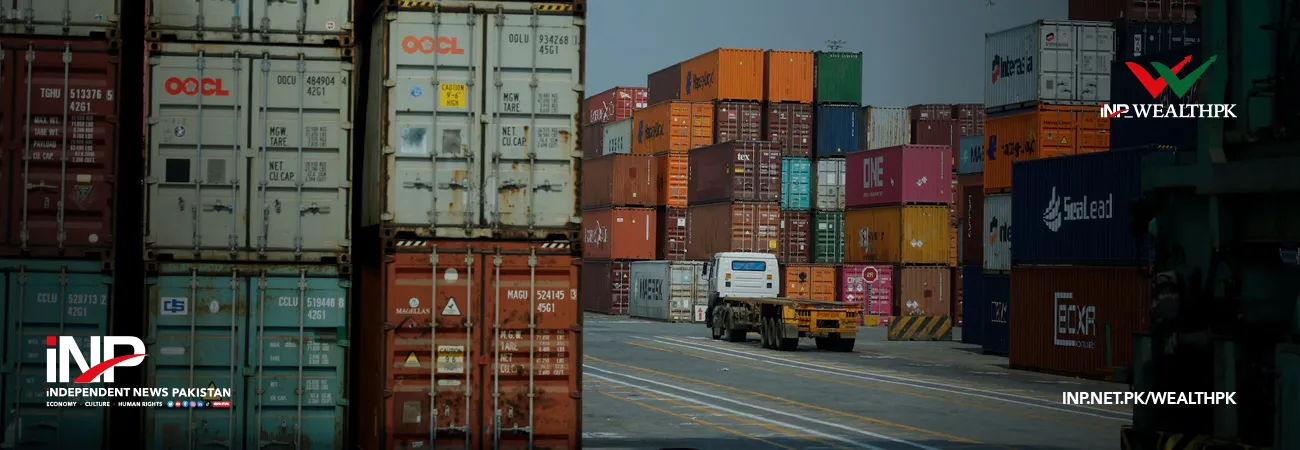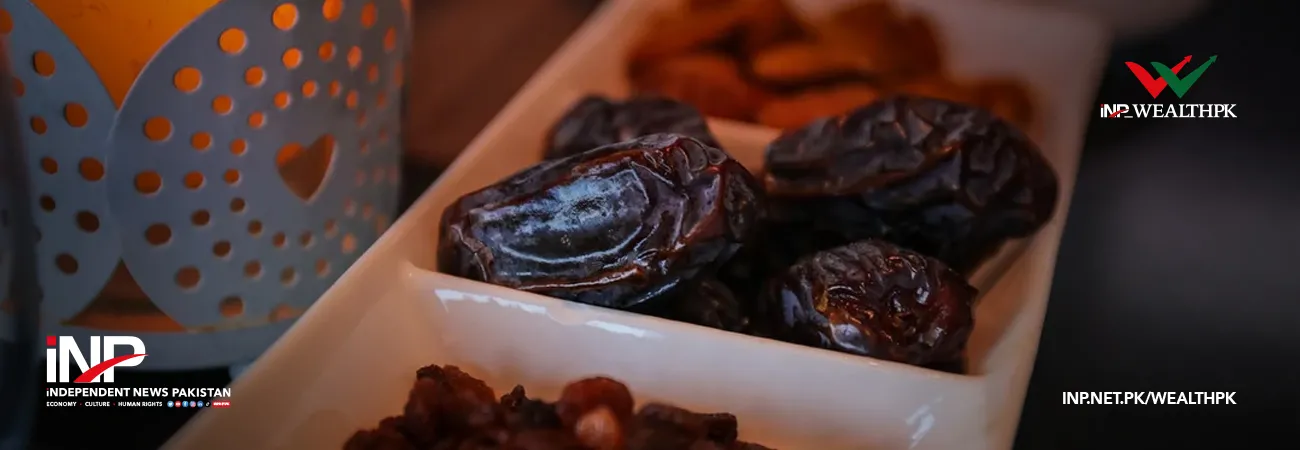INP-WealthPk
BEIJING, June. 19 (INP): China-Pak mango cooperation will give impetus to king of fruit industry, according to a report published by China Economic Net (CEN) on Sunday.
There is a dire need for joint ventures with China for establishing quality enhancement centres, fruit processing units, dehydration plants, drip irrigation and cold storage chains so Pakistani fruits could be exported in line with international standards,” Ehsan Chaudhry, Senior Vice President of Pakistan China Joint Chamber of Commerce and Industry (PCJCCI) said.
From January to September 2021, Pakistan exported 37.4 tons of fresh and dried mangoes to China, which is more than 10 times the 3.6 tons in the same period in 2020. Even so, it is still less than 0.36 percent of China’s total imports of 10,500 tons of mangoes during the same period.
Facing a market with huge potential, how to increase the production of mangoes in Pakistan and let more Chinese consumers feel the charm of this “king of fruits” is undoubtedly an urgent problem for bilateral practitioners.
Commonly known as the “king of fruits” locally, Pakistani mangoes are delicacy and delight that everyone is waiting anxiously for in summer season. It has also won the hearts of people living beyond the borders due to its enticing aroma, high sweetness and fine fiber.
However, local farmers are extremely worrying about production reduction of the succulent, yellow fruit caused by various factors. According to an official of the Ministry of National Food Security and Research, Pakistan last year produced around 1.7 to 1.8 million tons of mango.
And Pakistan's yearly mango exports amount to 150,000 metric tons, which earns around USD 90 million for 100 million to the nation annually. It is undoubtedly a good deal for Pakistan, which is in desperate need of foreign exchange reserves.
Worryingly, “the production figure may be confined to 0.9 million tonnes this year, or less,” according to All Pakistan Fruit and Vegetable Exporters Association (PFVA) Patron in Chief Waheed Ahmed. So, what on earth is going on here?
Farmer’s dreams of raking in big profits were shattered by an unusual spike in temperatures coupled with water shortages and unexpected windstorms in the months of March and April.
“Severe water shortages in Sindh leave us without enough water to irrigate fruit trees. And extreme weather, such as hot hurricanes, makes it hard to guard against,” Muhammad Khoso, a Mango Orchard Contractor from Hyderabad told CEN, “There are only 20 percent of mango production left in the areas with the worst reductions.” Besides, heavy windstorms in the first week of May caused major fruit-shedding.
The huge blow to Pakistani mango industry caused by water shortages and abnormal temperatures brought about by global warming is obvious. The South Asian nation is currently facing huge water shortages due to less snowfall and rains-triggering widespread protests by farmers. United Nations Convention to Combat Desertification has listed Pakistan among 23 countries facing drought emergencies.
In addition, as a light-loving tropical-subtropical plant, excessive temperature can also cause severe sunburn on mango flowers and fruits. “Unusual temperatures in March and April have wreaked havoc on mango production, causing a significant reduction in its quantity,” said Shahid Hameed Bhutta, a grower from northeastern Multan city, a big mango producing district.
Temperatures soared to 38-42 degrees Celsius in March and April in Multan, at least 6 degrees higher than usual causing massive fruit-shedding.
In addition to natural factors, rising fuel, transportation, labor, and packaging costs are also poised to lower the production, thus boosting the domestic prices of mangos and affecting exports.
Global warming is the common problem that farmers in China and Pakistan need to face, not only mangoes, but all crops will face the increasingly rigorous challenge of climate change in the next few years and even decades.
“Our advanced facility agriculture will be able to systematically improve the reduction of mango production in Pakistan due to extreme weather,” said Wang Yan, General Manager of Yangling Qingpita Garden Dragon fruit Demonstration Base in Shaanxi Province.
“Located in an arid and semi-arid area, Yangling has similar distribution of water resources to that of Pakistan. Our integrated water and fertilizer control system can save about 60-70 percent of water and fertilizer.
Also, we are more than happy to cooperate with Pakistani friends in greenhouse construction. Considering the high cost of comprehensive greenhouses, a simple and low-cost rain shelter can reasonably control the temperature. In case of cold wave, we can close its vents to keep the fruit trees warm. When facing extreme high temperature, it's time to open the vents to ensure air circulation.”
Beyond climate, human factor including outdated cultivation and harvesting techniques, high cost of production, substandard cold storage facilities, transportation issues, and lack of research and development are the major hindrances to the growth of mango industry, noted Shehzad Sheikh, chairman of the All Pakistan Fruit and Vegetable Exporters, “we are producing 2-3 tons of mangoes from an acre of land, whereas other countries are getting over 10 tons of yield with the same land.”
Regarding the abuse of fertilizers and pesticides in Pakistan, Muhammad Khoso shared his views as well, “in fact, too much chemical fertilizer increases the chance of pests and diseases. Our farmers should reduce the use of chemical fertilizers such as DAP and increase the proportion of natural organic fertilizers.”
His view was echoed by Wang Yan, “organic farming methods such as fermented farmyard manure and returning straw to the field are worthy of promotion, by which can also effectively cope with the high price and shortage of local fertilizers. Fundamentally speaking, chemical fertilizers are very destructive to soil. But straws, branches, and fungus sticks are excellent organic matter, which can be used for soil improvement to fundamentally improve fertility.”
Experts and government officials in the country believe that Pakistan needs to enhance cooperation with China, the world's second largest producer of mangoes, as it has introduced modern cultivation and pest-control methods, optimal sorting and packing technologies, improved logistics and cold chain facilities, and opened up more sales channels to enhance production and sales of the fruit.
China has already helped Pakistan in overcoming multiple issues that Pakistani farmers were facing by improving electricity supply and road infrastructure across the country under the China-Pakistan Economic Corridor (CPEC), emphasized former Federal Minister for National Food Security and Research Syed Fakhar Imam. “In the past, severe load shedding, especially in rural areas had greatly affected the mango production as orchards get water supply from tube-wells running on electricity.
Similarly, improved road infrastructure has shortened traveling time and facilitated farmers to get their produce to other cities more conveniently.”
Local people are also waiting for new changes. “No other mode of transportation except air freight. But due to the epidemic and other reasons, the freight charge has soared from 150 rupees per kg two years ago to 700 rupees per kg now, which is very difficult for us to afford, and it has also contributed to the high prices of Pakistani mangoes in China. I am eagerly looking forward to the day when we can ship mangoes to China by truck and train freely through the CPEC infrastructure,” Jamshaid Bhatti, a Mango exporter from Karachi told CEN, “However, as a perishable fresh product, the fresh-keeping technology during such long-distance transportation also needs to be considered."
INP/javed













